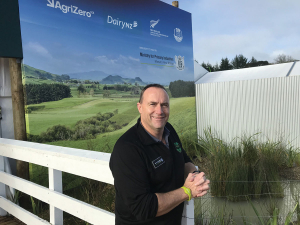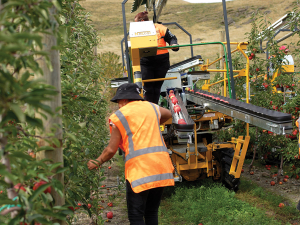The current bird flu outbreak in Britain is a reminder of why it is important for New Zealand to maintain its biosecurity standards, says the local poultry industry.
The UK is experiencing its largest ever outbreak of bird flu (avian influenza H5N1) and measures to prevent the virus from spreading include keeping birds inside.
Under their disease containment rules, producers had a 16-week grace period under which they could continue to call their eggs "free range" despite the birds being kept inside. However, that has now expired and they can only be marketed as "barn eggs". Free range eggs have now disappeared from British supermarket shelves.
New Zealand is unique in the world in not having any of the big three poultry diseases - avian influenza, Newcastle Disease and Infectious Bursal Disease (IBD, aka Gumboro), says Poultry Industry Association (PIANZ) executive director Michael Brooks.
To keep it that way, imports of raw chicken or raw eggs are prohibited. Raw turkey and duck are allowed under strict rules but Brooks - who told Rural News in 2018 that he was concerned at proposals to allow it in - says imports haven't happened because meeting the required standards would be a lot of effort and cost for what is a very small market.
"I said if they can meet those rules we have no reason to be concerned but I'll be surprised if they can meet the rules - and that seems to be what's happened."
Brooks wears three hats, as the executive director of the PIANZ, which represents poultry meat producers, the Egg Producers Federation, and also the NZ Feed Manufacturers Association, which covers manufacturers of a whole range of stock feeds, not just poultry.
He says there was an outbreak of IBD about three years agao on a farm in Otago but it was eradicated from that one site and not found anywhere else.
"To this day we don't know how - we have a suggestion that a mislabelled vaccine may have been the issue, we don't know. But whatever, it's gone."
The industry tests every farm annually for IBD in a self-funded programme, without government support.
"There's always threats and that is the part of reason why we have always been strongly supportive of really strong biosecurity rules on potential imports of raw products," Brooks adds.
"No other country in the world has freedom from those three diseases. So, we argue very strongly that if people say there should be imports of raw chicken or eggs, we say only if it can be shown that they're coming from countries or farms overseas where there is guaranteed freedom."
He says that is extremely hard to do when you farm in a country where it's all around.
"Plus, who knows what those those diseases could do to our native fauna? New Zealand began as a rather unqiue country in that all our native fauna is avian."



















